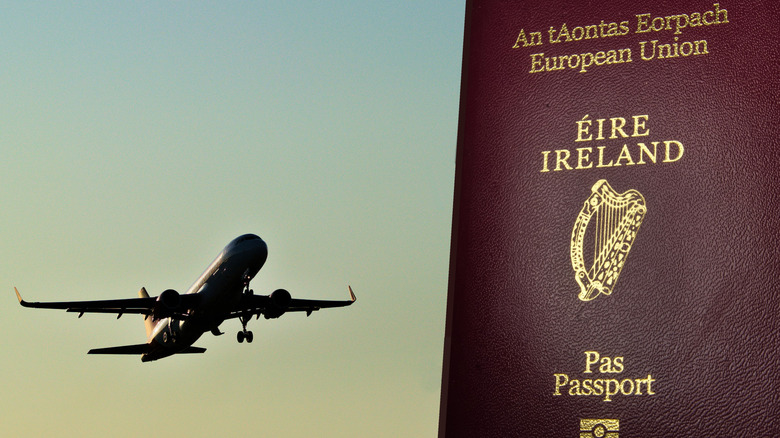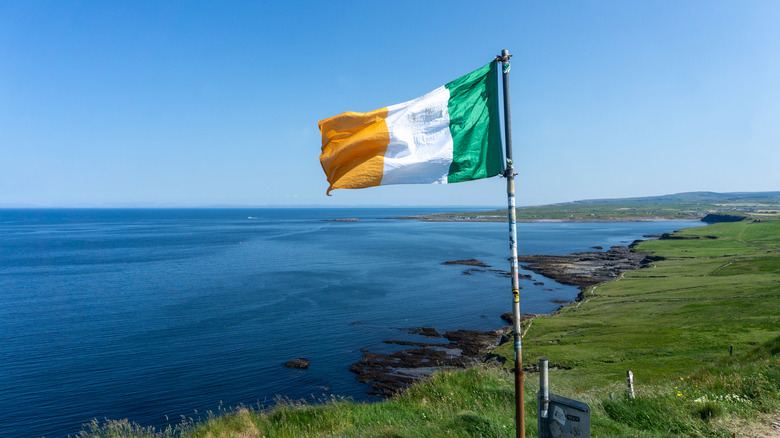You Can Get An Irish Passport Through Your Grandparent (Here's How To Apply)
It's a stereotype — albeit one that often rings true — that Americans with even the most tenuous ancestral connections to Ireland long to be reunited with the homeland. This unwavering patriotism towards a little green rock adrift from the coast of Western Europe seems paradoxical for people who live in the land of "bigger equals better," but such sentimentality might also have some practical applications.
According to the Henley Passport Index, which uses official data from the International Air Transport Association (IATA) to determine the world's strongest passports, the Irish passport is ranked joint No. 5, alongside other European passports, including those of France, Belgium, the Netherlands, and Denmark. Citizens of the Emerald Isle are granted visa-free access to 187 countries or regions, falling just short of Singaporeans, who hold the world's strongest national passport, with access to 192 countries.
If you want an Irish passport, whether for practical or symbolic reasons, being born in the country or acquiring citizenship after years of residence aren't the only pathways. Ireland recognizes citizenship by descent two generations back, meaning if any of your grandparents were Irish, you may qualify for the passport. Not only will this allow you to skip immigration lines when traveling to European Union countries, but it also grants working rights in the EU and the U.K. To put the Irish passport's utility in perspective, the Henley Passport Index ranked the South Korean passport at No. 2 (190 countries), Japan at No. 3 (189 countries), and the German, Italian, Luxembourgish, and Spanish passports a joint No. 4, counting them among Europe's most powerful passports, granting access to 188 countries. The U.S., by comparison, is ranked No. 12, which still gives American passport holders visa-free access to 180 countries or regions.
How to become an Irish citizen
To acquire an Irish passport, you'll first need to get official citizenship. This is granted through the Foreign Birth Registration (FBR), a database of people born outside Ireland but still considered Irish due to their ancestry. If you are born outside of Ireland but at least one of your parents is Irish, you're considered an Irish citizen from birth. Alternatively, if one of your grandparents was born in Ireland or was an Irish citizen at the time of your birth, you can register with the FBR.
You'll need to compile some documents to make your case, like your birth certificate, official ID, proof of address, and photographs, as well as a birth certificate and ID or death certificate for the grandparent in question. If your grandparent acquired Irish citizenship through the FBR, naturalization, marriage, or adoption, you'll need to supply the relevant documents to prove it. Once you've fulfilled the citizenship criteria, the process is quite straightforward, but you will have to pay a fee of €278 (€153 for children), and applications can take up to a year to process.
Assuming the application is granted, you are then eligible to apply for an Irish passport. When applying online, select "Foreign Birth Registry" as your citizenship category. You will have to provide your birth certificate, FBR certificate, any other passports, and, at the end of the process, a witness-signed Identity Verification Form. So, a fair amount of legwork is involved in getting the passport. But if you've dreamed of making Ireland your permanent vacation, then this is one way to ensure those dreams come true.

